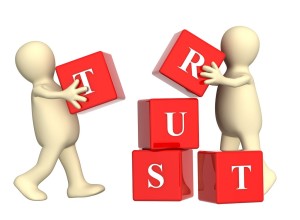This weeks’ Vlog post is on what I have learned about being self-aware and the impact it has on being a leader -pl
Reach out if you would like to know more about my coaching services and workshops….

This weeks’ Vlog post is on what I have learned about being self-aware and the impact it has on being a leader -pl
Reach out if you would like to know more about my coaching services and workshops….
This week begins a new series of video blog posts where we will discover what it means to be a leader in todays environment… it really doesn’t matter what the environment is – it may be leading a sales team selling season’s tickets for a professional sports team….. you may be a lead or general supervisor in a manufacturing plant or mining operation…. You could be running a small office… the main thing is that you have the responsibility of managing people
over the next several weeks, we will cover a number of topics and ideas relating leadership, I look forward to any suggestions or /or comments and we will address them as we go. So please send them in by adding comments to the comments section below….
Is Being Self-Centered That Bad: Caring for Others vs Caring for Self
How Flexible Are You? The Soft Skill of Adaptability. Part II
The Core of Leadership is Self-Awareness – Being who you are.

Over the past thirty weeks I have published a series of posts on Soft Skills: their development, the competencies they represents and the importance soft skills have in the workplace (or life in general, for that matter). I still like the following definition of Soft Skills because it is straight forward and concise: “’Soft Skills’ is a catch-all term referring to various behaviors that help people work and socialize well with others. In short, they are the good manners and personality traits needed to get along with others and build positive relationships. Unlike hard skills, which include a person’s technical skill set and ability to perform certain functional tasks, Soft Skills are broadly applicable across job titles and industries. It’s often said that hard skills will get you an interview but you need soft skills to get — and keep— the job.” http://searchcio.techtarget.com/definition/soft-skills. Soft Skills are “behaviors that help people work and socialize well with others”. To my mind, this hits the nail on the head.
I initially listed a catalog of soft skills as:
Over the course of this series I also added:
This is a significant list of skills and I’m sure there are others that could be added.
The series has generated a lot of interest and over the course of it I have had many very positive and thoughtful comments, some of which provided me with insight to write additional content. I’m also very excited that this series on Soft Skills has also been picked up by two other Blog sites, which in turn has created significant interest.
Next week I start a new series of posts based on my coaching with leaders. Lessons I have learnt, stories that made me think and how behaviours can be shifted to make us be better leaders
You can find the full list of blogs on Soft Skills HERE

As I completed my series on Soft Skills, a commenter asked me about the place of Trust, since I had not listed it as a specific Soft Skill. I’m not sure about this. The question of Trust seems to be relevant or applicable in a number of different areas, and so as I did with Professionalism, I ask the question: “Is Trust a soft skill on its own, or an underlining feature or component of all the soft skills I have discussed in the series?”

If people don’t trust you, they are less likely to work with you, invest in you, or pursue shared goals. Evidence suggest that if you take the time to build trust with your colleagues or team members, everyone will thrive. Many of the soft skills I covered in my series help to build trust – effective communication, openness and honesty, a positive attitude and a strong work ethic. Demonstrating that you are trustworthy helps not only to build personal relationships, but also to create “buy in” for your initiatives and projects. The literature suggests that people who are deemed trustworthy by colleagues share some of the same characteristics:
My own conclusion is that trust is a trait rather than a skill – that when you trust someone or create trust, it is an outcome of something else such as empathy, which helps build trust. In Search Inside Yourself (Harper One, 2012) Chade-Meng Tan stated that when we interact with empathy “we increase the likelihood that people feel seen, heard and understood”. Tan goes on to say that when we feel these things we tend to feel safer and therefore more likely to trust. In coaching we learn that the establishment of trust is the cornerstone of the coaching relationship, which is why confidentiality is so critical. By maintaining confidentiality we create a bond of trust between the parties. Lencioni in his work The Five Dysfunctions of a Team (Jossey-Bass, 2002) places the “Absence of Trust” on the bottom of his hierarchal pyramid, stating that this is the basis of dysfunction – everything starts here and the absence of trust is the basis for all the other dysfunctions.
In Credibility: How leaders gain and lose it (Jossey-Bass, 2011), Kouzes and Posner stated that “credibility is about how leaders earn the trust and confidence of their constituents” and that when asked in surveys how leaders build and sustain credibility, respondents’ most frequent answer was, “They do what they say they will do”. Trust, then, is tied to how we are perceived by others and by our actions: Do we walk the talk? Do we follow through on commitments and keep our promises?
I still don’t believe that trust is a specific Soft Skill but I’m open to dialogue on the subject. I do believe that trust is an outcome of how others perceive and interact with us. We either trust others or we don’t, based on how we perceive their actions.